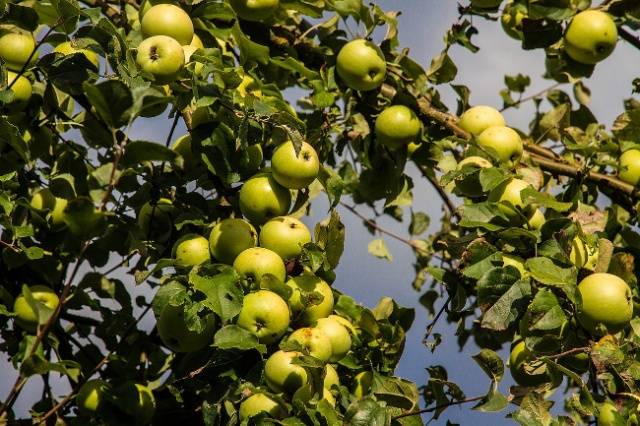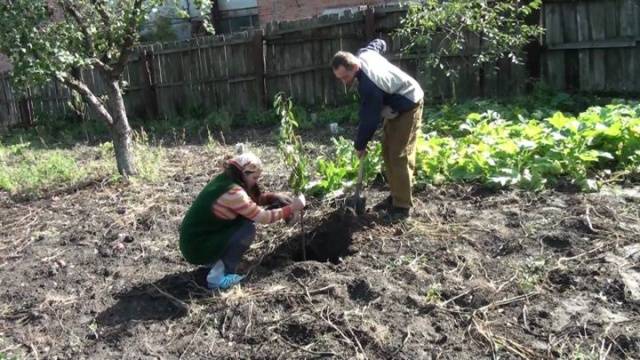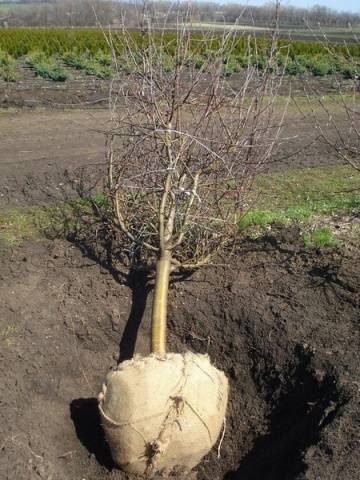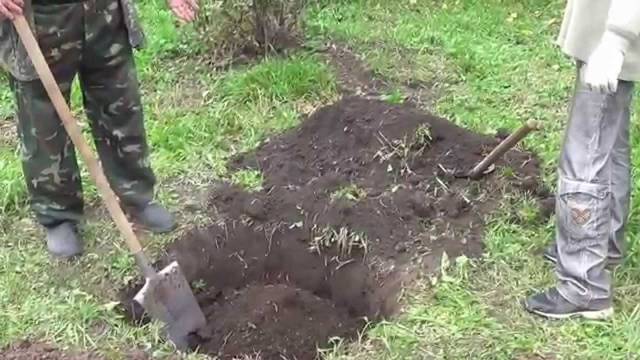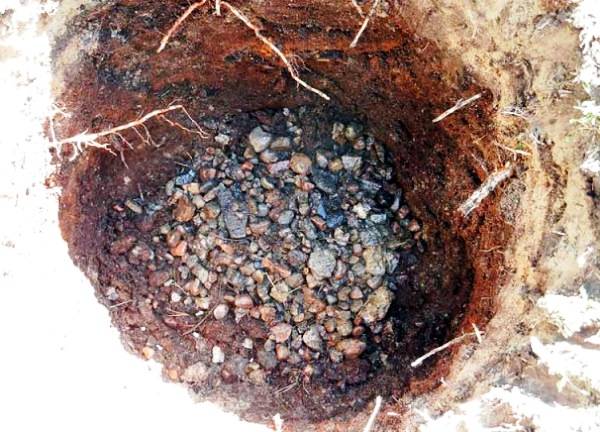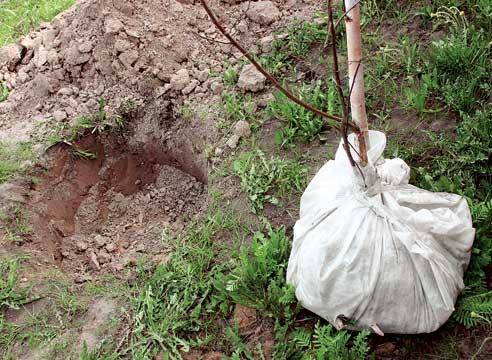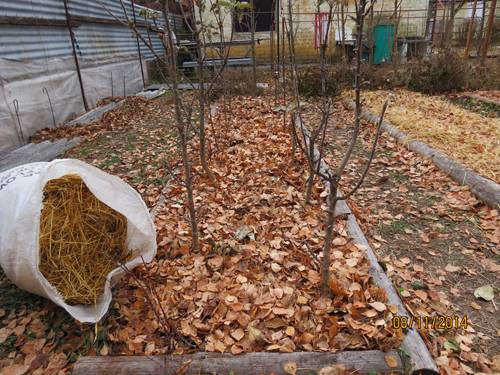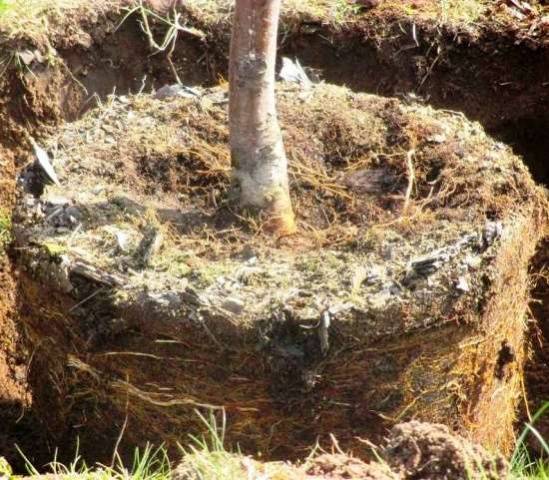Content
A good harvest can be harvested from one apple tree with good care. And if there are several trees, then you can provide the whole family with environmentally friendly fruits for the winter. But often there is a need to transplant plants to a new place. There are many reasons for this. This may be the wrong planting of the apple tree in the spring, when the neck was buried. Sometimes it is necessary to transfer a fruit tree due to the incorrectly chosen initially place.
We will try to tell you more about the rules and features of transplanting an apple tree to a new place in the fall, taking into account the requests of gardeners. After all, even minor mistakes affect not only future fruiting, but can also cause the death of a tree. When asked whether it is possible to transplant an apple tree in the fall, we will answer unequivocally: yes.
Questions regarding the choice of the season for transplanting apple trees of different ages to another place are of concern not only to novice gardeners. Even experienced gardeners sometimes doubt the correctness of the upcoming work. First of all, when is it better to transplant - in spring or autumn.
Experts believe that the autumn transplantation of fruit trees to a new place is the most successful time, since the plant, being in a dormant period, receives less stress and injuries. But at the same time it is necessary to take into account the climatic features of the territory.
When to transplant an apple tree in the fall, gardeners ask themselves. As a rule, 30 days before the onset of persistent frost. And this is in central Russia, mid-September, late October. The background temperature at this time is still positive during the day, and the night frosts are still insignificant.
So, what conditions need to be considered:
Autumn should be rainy.
- Transplanting apple trees to a new place in the fall is carried out with the onset of dormancy, the signal for this is the fall of the foliage. Sometimes the tree does not have time to throw off all the foliage, then it needs to be cut off.
- Nighttime temperatures at the time of transplantation should not be lower than minus six degrees.
- It is better to replant apple trees in the evening.
General principles of transplant
If you want to know how to transplant an apple tree to a new place in the fall, try to carefully read some of the recommendations. Moreover, they are common for trees that are 1, 3, 5 years old or older.
Transplant principles:
- If you have planned to transplant apple trees, then you need to take care of a new place in advance. We'll have to dig a hole in the fall. Moreover, its size should be large so that the roots of the displaced tree are located in it freely both from below and from the sides. In general, in order for the tree to be good, we dig a hole for the apple tree in a new place one and a half times larger than the previous one.
- A place for transplanting an apple tree in the fall to a new place should be chosen well-lit, protected from drafts.
- The place should be on a hill, the lowland is not suitable, because the root system during the rainy season will be very waterlogged, which will negatively affect the development of the tree and fruiting.
- Apple trees love fertile soils rich in microelements, therefore, when replanting apple trees, add humus, compost or mineral fertilizers to the pit (mix with compost and humus). They are placed at the very bottom, then covered with a fertile layer deposited while digging a hole.It is unacceptable to lay the roots when transplanting apple trees in autumn or spring directly onto fertilizer, since this is fraught with burns.
- Apple trees do not tolerate acidic soils, so a little dolomite flour should be added.
- The occurrence of groundwater in a new place should not be high. If the problem cannot be solved due to the fact that there is no other place on the site, then you will have to take care of the drainage system. For drainage, you can use crushed stone, brick, stones or chopped planks. Moreover, this pillow is laid before filling the compost.
- You can correctly transplant the apple tree in a new place if you dig it out carefully, leaving the main roots intact. The rest of the root system is carefully examined and revised. Do not leave damaged roots on the tree, signs of disease and rot. They should be ruthlessly removed. Places of cuts are sprinkled with wood ash for disinfection.
- When taking out a large or small apple tree from an old pit, do not try to shake off the soil on purpose. Remember, the larger the clod of earth, the faster the apple tree will take root.
If this is not possible, keep the seedling in water for at least 8-20 hours.
We transplant apple trees of different ages
As we have already said, spring or autumn transplantation is possible for apple trees of different ages, but after 15 years, it makes no sense to carry out such an operation for two reasons. Firstly, the survival rate in a new place is practically zero. Secondly, the life cycle of fruit plants is coming to an end. In the new place, you still can't get the harvest. Why torment the tree?
Let's look at how to properly transplant fruit trees of different ages to a new place, and find out if there is a special difference, including for columnar apple trees.
How to transplant young trees
If in the spring, when planting an apple tree seedling, an unsuccessful place was chosen, then in the fall you can transplant it, and almost painlessly. After all, a young plant, which has been growing in its old place for no more than a year, has not yet such a large root system, and the roots themselves did not have time to go deep.
Landing site preparation
We dig a hole in a month, fill it with drainage and soil. This procedure is necessary for the earth to settle. In this case, it will not pull down the root collar and the place of the scion during transplantation.
Preparing an apple tree for transplant
When the time comes to transplant the apple tree to a new place, they spill the soil around the apple tree, dig in the apple tree, going slightly beyond the perimeter of the crown. Gently dig in the soil, trying not to damage the roots. A tarp or other dense material is spread nearby, the trunk is wrapped with a soft cloth and the tree is taken out of the hole.
Sometimes they dig up apple trees not on their site, but far beyond its borders. For transportation, the excavated plants are placed in a bag, and then large boxes, so as not to damage the roots and not disturb the clod of their native land. Skeletal branches are gently bent to the trunk and fixed with a strong twine.
But before you take the apple tree out of the ground by the trunk, you need to make a mark on it in order to navigate along it when transferring the plant to a new place.
If all the leaves have not yet flown off the tree, you can still transplant it. But in order to stop photosynthesis and the expenditure of the plant's energy on it, the leaves are removed. In this case, the plant will switch to strengthening the root system and the growth of new lateral roots.
A small mound is made in the pit, an apple tree is placed.A strong stake is driven in nearby, to which you need to tie a tree. In order not to peel the bark, a soft cloth is placed between the twine and the trunk. The twine is tied in the "figure of eight" method so that it does not dig into the bark of the apple tree when the plant begins to mature.
When the apple tree is transplanted, the top fertile layer is thrown over the roots. Having thrown part of the soil, it is necessary to perform the first watering. Its task is to wash the earth down under the roots so that voids do not form. Then we fill the hole with soil again, tamp it around the apple tree trunk to ensure greater contact of the roots with the soil, and water it. When the tree is transplanted to a new place, it is required to pour out 2 buckets of water again. In total, three buckets of water are enough for a young apple tree, older plants need more.
If by chance the stem or the place of the scion turned out to be under the ground, you need to carefully pull the apple tree up, then trample the ground again. The soil must be mulched to prevent drying out. From the remaining soil, a side is made around the perimeter of the crown of the tree for the convenience of watering.
Experienced gardeners, when replanting an apple tree, try not to carry out strong pruning of branches and shoots in the fall. This operation is left until spring. After all, winter can be too harsh, who knows how many branches will remain intact.
In the video, the gardener talks about the features of transplanting a young apple tree to a new place:
Transplanting adult apple trees
Novice gardeners are also interested in how to transplant apple trees three years old and older to a new location. It should be noted that there is no big difference in actions or timing. Although the procedure itself is complicated by the fact that the clod is large, the root system is powerful, it cannot be done on its own.
Before replanting adult apple trees in the fall, wait until the leaves turn yellow and fall off by 90 percent. Since the crown has already been formed on plants aged three years and older, it is necessary to prune before transplanting. First of all, the broken branches are removed, then those that grow incorrectly or intertwined with each other. By the end of the procedure, the distance between the branches of the crown should be thinned so that sparrows fly freely between them.
Many gardeners have columnar apple trees on the site, which also have to be transplanted. Immediately, we note that such plants are compact, low growth, which greatly facilitates harvesting. Despite the external effect, columnar apple trees have one drawback: they age faster than ordinary vigorous fruit trees.
As for the transfer to a new place, there are no problems. All actions are identical. You can transplant apple trees to a new place both in spring and autumn. Since the plants are compact, the root system does not grow much.
And the most interesting thing is that the deepening of the root collar does not negatively affect growth and fruiting. The only thing that needs to be done is to ensure that the water does not stagnate, especially if the soil is clayey.
Features of transplanting columnar apple trees to a new place in the fall:
Conclusion
As you can see, the autumn transplantation of apple trees to a new place is possible for plants not older than 15 years. The main thing is to comply with the requirements and recommendations. The deadlines are the same for everyone: you need to catch up before the onset of frost, in the cool ground. Transplanted trees should always be watered abundantly. We hope that you will cope with the work, and the apple trees in the new place will delight you with a bountiful harvest.
